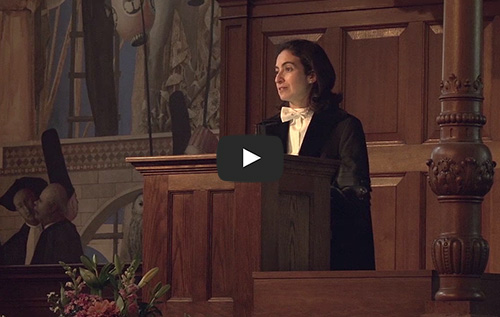Video of Inaugural lecture Prof G.P. Mifsud Bonnici: Towards transparent technology: developing appropriate fundamental rights safeguards and remedies
“Most of us own a smart phone, a smart TV and perhaps are thinking of buying a driverless car. We can also think of all the applications monitoring different dimensions of our health or performance in sport or our financial transactions and so forth. The past decades have seen an increase in information technology tools aimed at maximising convenience over other values such as privacy. When technical tools and applications are well fitted to, and integrated with our own lives and projects, they become transparent, invisible-in-use to us. Until they become transparent, one may still be aware of their beneficial effect on our life and potential negative aspects of using a particular technology such as an interference with our privacy if our personal information is used inappropriately. But the more transparent technology around us becomes the less we will notice its presence and effects.
Based on the principle of prevention is better than cure, Prof. Jeanne Mifsud Bonnici argues that we need to embed fundamental rights safeguards in the building of all new technologies and we need to identify clear remedies for infringement of rights. We need this embedding as the more transparent the technology becomes the more safeguards and remedies become opaque to citizens. But how should this be done? And by who? In essence, Mifsud Bonnici argues, this is a shared responsibility by states, private parties and citizens in search for better safeguards and remedies. The lecture explains how the Security, Technology and e-Privacy Research Group (STeP) co-lead by Prof Mifsud Bonnici has been active in identifying safeguards and remedies needed in the use and deployment of smart surveillance technologies and how this work will be taken up in the future to cover other emerging transparent technologies.”
The inaugural lecture took place in the Academy Building of the University of Groningen on 3rd May 2016.

| Last modified: | 19 January 2024 08.59 a.m. |
More news
-
22 April 2025
Impact | Online advice about right to freedom of assembly
In the coming weeks the nominees for the Ben Feringa Impact Award 2025 will introduce themselves and their impactful research or project. This week: Noor Swart and Berend Roorda, on their online information initiative on the right of freedom to...
-
22 April 2025
How do you shield yourself from Big Tech's power?
How can we all become less dependent on Big Tech? A topical and urgent question that is also arising within the University. Recently, a petition by a group of staff members made the rounds that called for the University to break away from Google and...
-
15 April 2025
The Faculty of Law launches podcast The Right to News
On 16 April 2025, the Faculty of Law at the University of Groningen will launch the first episode of its podcast The Right to News (in Dutch: Recht op Nieuws). The theme of the first episode is: “Can the government just ban organizations in the...
